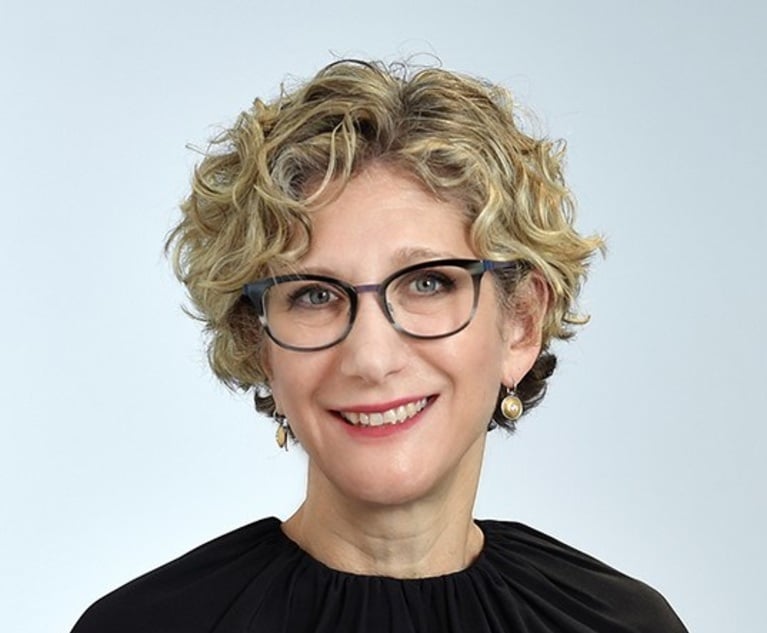Think Managing Work-Life Balance Is Hard? Try Doing It for a Global Workforce
International law firms must have strategies in place that embrace the varying needs and laws of different jurisdictions, says the managing director of the global legal services provider Vario.
June 09, 2020 at 05:53 PM
3 minute read
Mental well-being and work-life balance have become part of mainstream conversation in law departments and firms. Now more than ever, in these strange times, the coronavirus pandemic has forced workforces around the world to operate from home during the past few months. With this, employees are facing new issues, including how to juggle work and child care, and how to switch off and separate work and home life.
Mental health and well-being is a serious issue on law firm agendas, with publicized initiatives bringing real and meaningful change. In the United States and the United Kingdom, firms have been striving to improve work-life balance for their lawyers and staff.
But other countries also have initiatives designed to support workers. In Germany, for example, the law restricts not only how many hours lawyers can work per week (48 max), but also how soon they can start a new working day after finishing the previous evening. In 2018, South Korea introduced a new measure to tackle a culture of working overtime and ruled that all employees must switch off their computer by 8 p.m. on a Friday. In Singapore, the Ministry of Manpower established the "Work-Life Grant," aimed at providing funding and incentives for companies to offer flexible work arrangements to employees.
International law firms must work hard and have strategies in place that embrace these variations across jurisdictions.
Law firms and legal departments need to understand the cultural, professional and emotional drivers across their workforces, as well as the working regulations and current government guidelines regarding social distancing in the country in which they reside. One initiative designed to support the mental health and well-being of its workforce might not be right or applicable for employees in a different jurisdiction. This is particularly true now, when some workforces are being forced to work from home and others are able to return to the office.
Outside of the coronavirus, cultural differences are extremely varied across the world and need to be taken into consideration as part of international companies' mental health agendas. For example, in certain cultures there is an expectation that elderly relatives are looked after by their families. Many professionals will abandon successful careers at this point in their lives, as there might not be the right support in place from their employers to help them. The knock-on effect is that the profession loses a lot of senior talent. But if these employees were provided with the right support as well as flexibility, they would benefit from being able to continue their role, and their employers would benefit by stemming an outflow of talent and skill.
Cross-cultural divides are a challenge for any global law firm or legal department manager. And that's truer now more than ever for managers who are having to grapple with employees who have to, or wish to continue to, work from home. The key is to understand these points of difference, as well as where they come from, and be able to present opportunities for healthy work-styles and work-life balance for all.
Matthew Kay is managing director of Vario at Pinsent Masons
This content has been archived. It is available through our partners, LexisNexis® and Bloomberg Law.
To view this content, please continue to their sites.
Not a Lexis Subscriber?
Subscribe Now
Not a Bloomberg Law Subscriber?
Subscribe Now
NOT FOR REPRINT
© 2024 ALM Global, LLC, All Rights Reserved. Request academic re-use from www.copyright.com. All other uses, submit a request to [email protected]. For more information visit Asset & Logo Licensing.
You Might Like
View All
What to Expect From Teresa Ribera, the EU‘s New Competition Commissioner
6 minute read

Law Firms Mentioned
Trending Stories
- 1Recent Decisions Regarding the Telephone Consumer Protection Act
- 2The Tech Built by Law Firms in 2024
- 3Distressed M&A: Mass Torts, Bankruptcy and Furthering the Search for Consensus: Another Purdue Decision
- 4For Safer Traffic Stops, Replace Paper Documents With ‘Contactless’ Tech
- 5As Second Trump Administration Approaches, Businesses Brace for Sweeping Changes to Immigration Policy
Who Got The Work
Michael G. Bongiorno, Andrew Scott Dulberg and Elizabeth E. Driscoll from Wilmer Cutler Pickering Hale and Dorr have stepped in to represent Symbotic Inc., an A.I.-enabled technology platform that focuses on increasing supply chain efficiency, and other defendants in a pending shareholder derivative lawsuit. The case, filed Oct. 2 in Massachusetts District Court by the Brown Law Firm on behalf of Stephen Austen, accuses certain officers and directors of misleading investors in regard to Symbotic's potential for margin growth by failing to disclose that the company was not equipped to timely deploy its systems or manage expenses through project delays. The case, assigned to U.S. District Judge Nathaniel M. Gorton, is 1:24-cv-12522, Austen v. Cohen et al.
Who Got The Work
Edmund Polubinski and Marie Killmond of Davis Polk & Wardwell have entered appearances for data platform software development company MongoDB and other defendants in a pending shareholder derivative lawsuit. The action, filed Oct. 7 in New York Southern District Court by the Brown Law Firm, accuses the company's directors and/or officers of falsely expressing confidence in the company’s restructuring of its sales incentive plan and downplaying the severity of decreases in its upfront commitments. The case is 1:24-cv-07594, Roy v. Ittycheria et al.
Who Got The Work
Amy O. Bruchs and Kurt F. Ellison of Michael Best & Friedrich have entered appearances for Epic Systems Corp. in a pending employment discrimination lawsuit. The suit was filed Sept. 7 in Wisconsin Western District Court by Levine Eisberner LLC and Siri & Glimstad on behalf of a project manager who claims that he was wrongfully terminated after applying for a religious exemption to the defendant's COVID-19 vaccine mandate. The case, assigned to U.S. Magistrate Judge Anita Marie Boor, is 3:24-cv-00630, Secker, Nathan v. Epic Systems Corporation.
Who Got The Work
David X. Sullivan, Thomas J. Finn and Gregory A. Hall from McCarter & English have entered appearances for Sunrun Installation Services in a pending civil rights lawsuit. The complaint was filed Sept. 4 in Connecticut District Court by attorney Robert M. Berke on behalf of former employee George Edward Steins, who was arrested and charged with employing an unregistered home improvement salesperson. The complaint alleges that had Sunrun informed the Connecticut Department of Consumer Protection that the plaintiff's employment had ended in 2017 and that he no longer held Sunrun's home improvement contractor license, he would not have been hit with charges, which were dismissed in May 2024. The case, assigned to U.S. District Judge Jeffrey A. Meyer, is 3:24-cv-01423, Steins v. Sunrun, Inc. et al.
Who Got The Work
Greenberg Traurig shareholder Joshua L. Raskin has entered an appearance for boohoo.com UK Ltd. in a pending patent infringement lawsuit. The suit, filed Sept. 3 in Texas Eastern District Court by Rozier Hardt McDonough on behalf of Alto Dynamics, asserts five patents related to an online shopping platform. The case, assigned to U.S. District Judge Rodney Gilstrap, is 2:24-cv-00719, Alto Dynamics, LLC v. boohoo.com UK Limited.
Featured Firms
Law Offices of Gary Martin Hays & Associates, P.C.
(470) 294-1674
Law Offices of Mark E. Salomone
(857) 444-6468
Smith & Hassler
(713) 739-1250









